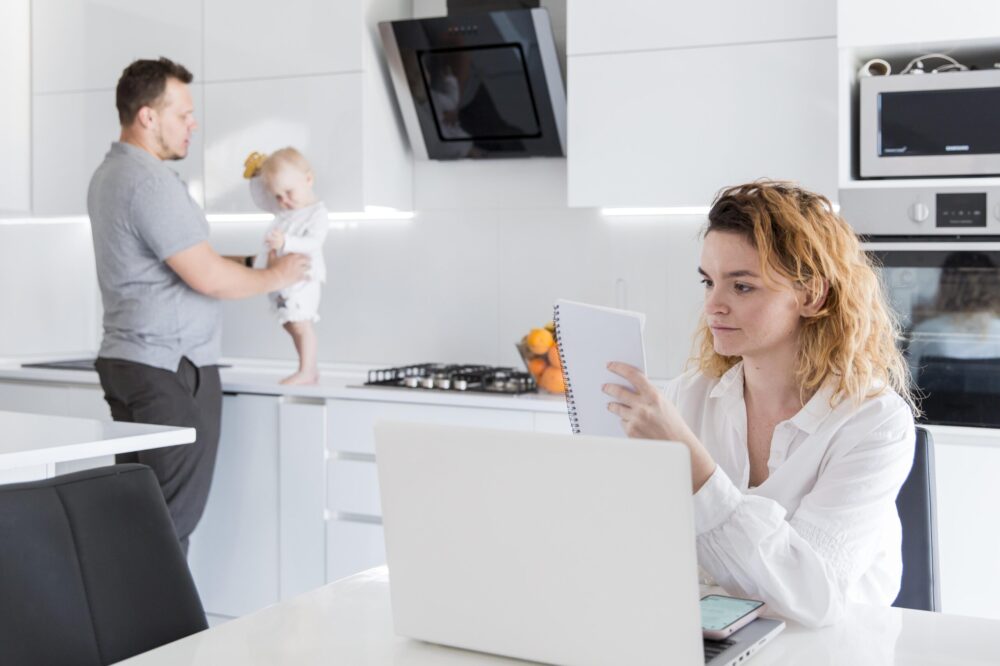The kitchen is one of the busiest rooms in any home, a space where delicious meals are prepared and memories are made. However, it’s also a hotspot for potential hazards, from grease fires to electrical issues and appliance malfunctions. For home chefs, knowing how to prevent and handle kitchen emergencies is essential—not just for safety, but also for managing your homeowners insurance effectively.
In this article, we’ll explore critical kitchen safety measures, provide expert homeowners insurance tips, and share advice on making a home insurance claim if an incident occurs. These proactive steps will ensure your kitchen is prepared for emergencies, protect your home, and help you make informed decisions when shopping for home insurance.
Why Kitchen Emergencies Matter for Home Insurance
Kitchen emergencies can have a significant impact on your home’s safety and insurance costs. When disasters like grease fires or appliance malfunctions occur, they can lead to costly repairs, increased premiums, or even denied claims if negligence is proven. By understanding common kitchen risks and taking preventive steps, you can mitigate these dangers and position yourself as a low-risk homeowner.
Insurance Implications of Kitchen Hazards
- Grease Fires: These are one of the leading causes of home fires, resulting in extensive damage that often requires making a home insurance claim. Insurance companies might evaluate whether proper precautions were in place before covering the loss.
- Electrical Issues: Faulty wiring or overloaded circuits in the kitchen can spark fires, leading to significant damage and potential liability concerns.
- Appliance Malfunctions: From burst water lines in refrigerators to malfunctioning ovens, appliance failures can cause water damage, electrical problems, or even fires.
Preparing Your Kitchen for Emergencies: Prevention Tips
A well-prepared kitchen not only reduces risks but also ensures that if something does go wrong, you’re better equipped to handle the situation safely and efficiently. Here’s how to protect against the most common kitchen emergencies.
1. Protecting Against Grease Fires
Grease fires are one of the most dangerous and frequent hazards in the kitchen. These fires ignite quickly and can escalate within seconds.
Preventive Measures
- Avoid Overheating Oil: Always monitor oil when frying and use a thermometer to keep it within a safe temperature range.
- Keep Flammable Materials Away: Store paper towels, dishcloths, and wooden utensils away from stoves and hot surfaces.
- Regularly Clean Cooking Surfaces: Grease build-up in ovens, stovetops, and range hoods is highly flammable. Clean these areas routinely.
Emergency Response
- Never Use Water to Extinguish a Grease Fire: Water causes grease fires to spread. Instead, smother the flames by covering the pan with a metal lid or using baking soda or salt.
- Use a Fire Extinguisher: Equip your kitchen with a Class B or multipurpose fire extinguisher, and ensure all household members know how to operate it.
2. Safeguarding Against Electrical Issues
Electrical problems in the kitchen are often caused by overloaded circuits or outdated wiring, posing a significant fire risk.
Preventive Measures
- Inspect Electrical Appliances: Regularly check cords and plugs for damage. Replace appliances with frayed wires immediately.
- Avoid Overloading Outlets: Plug only one major appliance into an outlet at a time. Use surge protectors for smaller devices.
- Upgrade Wiring: If you live in an older home, consider hiring a licensed electrician to assess and upgrade your kitchen’s electrical system.
Emergency Response
- Turn Off Power: If you notice sparks, burning smells, or flickering lights, turn off the power to the affected area and contact a professional.
- Avoid Water Near Electricity: Ensure hands and countertops are dry before handling electrical appliances to prevent shocks.
3. Preventing Appliance Malfunctions
Modern kitchens are filled with appliances that make life easier but can also pose risks if not maintained properly.
Preventive Measures
- Follow Manufacturer Guidelines: Read and adhere to the maintenance instructions for all kitchen appliances.
- Inspect Water Connections: Check the water lines of dishwashers and refrigerators for leaks or signs of wear.
- Clean Filters and Vents: Regularly clean filters in dishwashers and vents in ovens or microwaves to prevent overheating or clogging.
Emergency Response
- Unplug Malfunctioning Appliances: If an appliance malfunctions or starts to emit smoke, unplug it immediately and avoid using it until inspected or repaired.
- Shut Off Water Supply: If a water-related appliance leaks, locate and turn off the water supply valve to prevent further damage.
Homeowners Insurance Tips for Kitchen Emergencies
Understanding your insurance coverage and taking proactive steps can save you time, money, and stress in the event of a kitchen emergency. These homeowners insurance tips will help you navigate coverage options and make informed decisions.
1. Review Your Policy
Carefully review your homeowners insurance policy to understand what is covered. Most policies include protection against fire, water damage, and liability claims, but exclusions may apply. If you’re unsure, ask your insurance provider for clarification.
2. Invest in Safety Features
Insurance companies may offer discounts for homes equipped with safety features like fire extinguishers, smoke detectors, and water leak detectors. These upgrades not only protect your home but can also reduce your premiums.
3. Keep Documentation
Maintain detailed records of your kitchen appliances, including purchase receipts, warranties, and photos. This information can be invaluable when making a home insurance claim for damage or replacement.
4. Consider Higher Liability Limits
Kitchen accidents can lead to liability claims if someone is injured. Opting for higher liability coverage ensures you’re protected against lawsuits and medical expenses.
Shopping for Home Insurance Tips: Tailoring Your Policy
When shopping for home insurance, it’s essential to choose a policy that aligns with your needs as a home chef. Here are some shopping for home insurance tips to consider:
1. Compare Policies
Request quotes from multiple providers to compare coverage options and premiums. Look for a policy that balances comprehensive protection with affordability.
2. Bundle Policies
Many insurance companies offer discounts when you bundle homeowners and auto insurance. This not only simplifies billing but can also lead to significant savings.
3. Ask About Deductibles
Higher deductibles often result in lower premiums, but ensure you can comfortably afford the out-of-pocket expense in case of an emergency.
Making a Home Insurance Claim: Advice for Home Chefs
If a kitchen emergency occurs, knowing how to handle the claims process can make recovery smoother. Follow these making a home insurance claim advice steps to ensure you’re adequately compensated:
1. Document the Damage
Take photos and videos of the damage immediately after the incident. Include images of affected appliances, cabinetry, and structural damage.
2. Notify Your Insurer Promptly
Report the incident to your insurance company as soon as possible. Provide them with detailed information about what happened and the extent of the damage.
3. Keep Receipts
Save receipts for any immediate repairs or replacements you make. These expenses may be reimbursable under your policy.
4. Work with an Adjuster
Your insurance company may send an adjuster to assess the damage. Be prepared to provide them with documentation and answer any questions about the incident.
5. Understand Your Coverage
Familiarize yourself with your policy’s limits, exclusions, and deductibles to avoid surprises during the claims process.
Final Thoughts: A Safer Kitchen, A Secure Home
By implementing preventive measures and understanding your homeowners insurance, you can turn your kitchen into a safer, more secure space. Whether it’s protecting against grease fires, electrical issues, or appliance malfunctions, preparation is key.
When shopping for home insurance, consider policies that reward safety features and align with your needs as a home chef. And if an emergency does occur, following the right steps when making a home insurance claim can ensure a smoother recovery process.
A little effort today can lead to lower risks, better insurance premiums, and peace of mind for the future. Protect your kitchen, protect your home, and enjoy the art of cooking with confidence!


